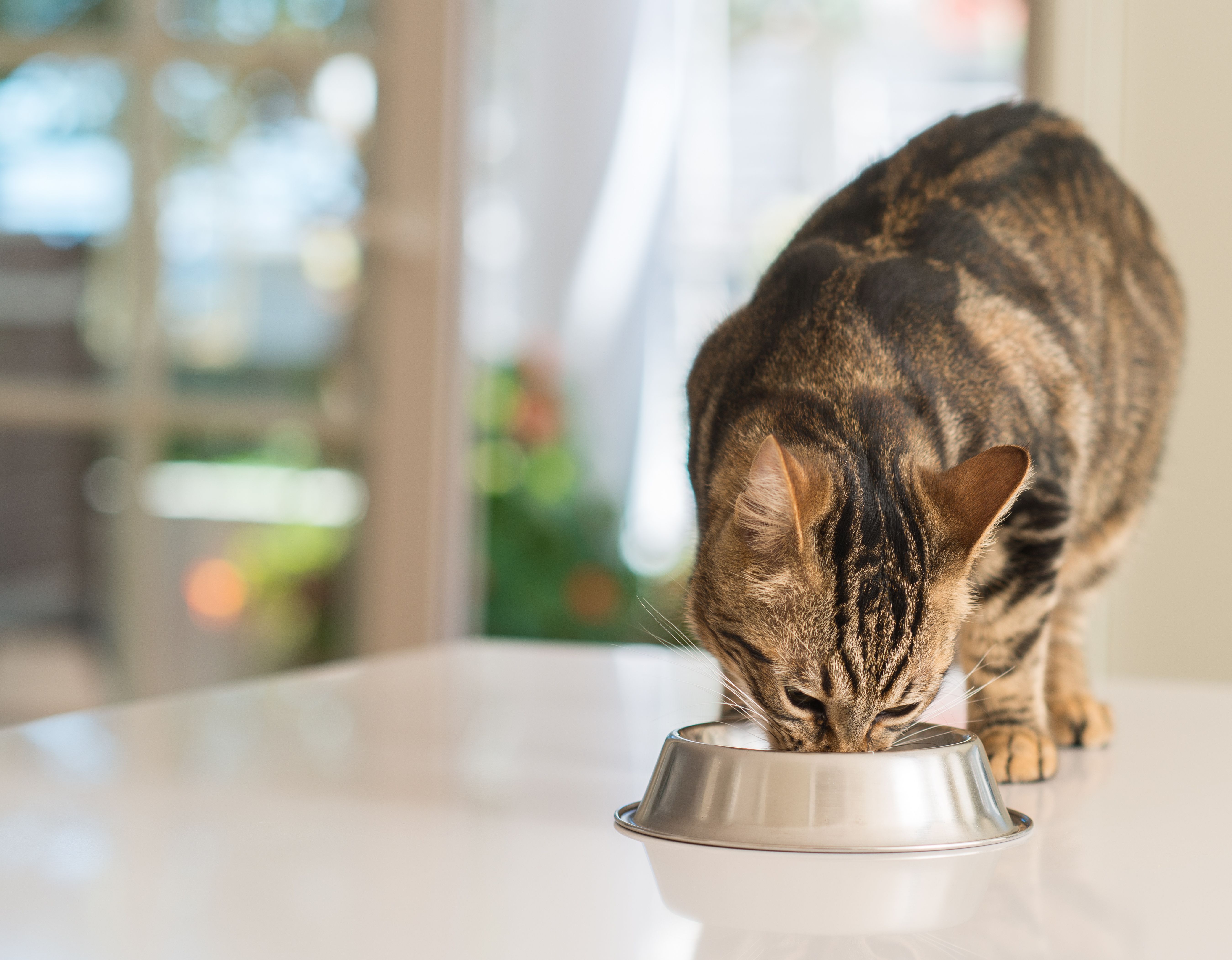Research shows bifidobacterium Longum and Fibersol-2 may aid feline gastrointestinal health
For the study, participating cats underwent an abrupt dietary change
Photo: Krakenimages.com/Adobe Stock

A recent study found that including heat-treated Bifidobacterium longum CECT-7347 (Priome Gut Health) combined with Fibersol-2 (Pet Fibersol) in adult cats’ diets improved their intestinal health. The study, led by ADM—a human, pet, and animal nutrition company—in collaboration with China Agricultural University, aimed to investigate the effect these supplements have on the digestive health of felines before and after undergoing an abrupt dietary change.1,2
Suddenly changing a cat’s diet can disrupt their gastrointestinal balance, which can lead to inflammation. When transitioning to a high-protein diet, cats can be even more impacted. Although gradually transitioning to the new food over the course of 7 days has been shown to reduce gastrointestinal upset, diet change-related diarrhea is still common in cats, according to the authors of the study.1
Postbiotic Bifidobacterium longum CECT 7347 helps improve the gut microbiota balance and strengthen the intestinal barrier, leading to improved gastrointestinal health during dietary changes, according to ADM. Additionally, Fibersol-2 raises the levels of beneficial bacteria while containing a low glycemic index, reduced body fat, and improved adaptation to high-protein diets.2
For the 28-day study, which was published in Animals, researchers looked at 24 British shorthair adult cats. The felines were divided into 2 groups, with the control group receiving a lower protein concentration (33%) diet for days 1 to 14. The treatment group, meanwhile, received the same diet as the control group, but were supplemented with 0.16% functional additives of Bifidobacterium longum CECT-7347 combined with Fibersol-2—a soluble dietary fiber. From days 15 to 28, both groups switched to a higher-protein diet (40%). The treatment group continued receiving the same supplement.
The cats that received the supplement showed significant improvements in serum lipopolysaccharide, an indicator of intestinal permeability, both before and after the diet change.1,2 The use of heat-treated Bifidobacterium longum CECT-7347 combined with Fibersol-2 also lowered the felines’ fecal pH and increased their fecal levels of secretory immunoglobulin A (sIgA).
“…the functional additive regulates the fecal microbiota and its function, promoting intestinal homeostasis and colonization with beneficial bacteria such as Blautia,” wrote the study’s authors.1 “Furthermore, on day 28, there was a significant difference in fecal microbiota beta diversity between the two groups.”
“We understand the vital role gut health plays in pets’ overall well-being, particularly during dietary changes,” Mark Lotsch, president of global health & wellness at ADM, said in a report.2 “Insights from this study will open new doors for creating innovative pet food solutions that enhance digestive health and nutritional balance.”
References
- Wang F, Gao S, Peng Q, Tan L, Chen S, Xia Z. Effects of heat-treated Bifidobacterium Longum CECT-7347 combined with fibersol-2 on the intestinal health of cats submitted to an abrupt dietary change: A randomized controlled study. Animals. 2024;14(15):2179. doi:10.3390/ani14152179
- ADM-led study focuses on cat digestive health. Feed Additive International Magazine for Animal Feed & Additives Industry. January 31, 2025. Accessed February 19, 2025. https://www.feedandadditive.com/adm-led-study-focuses-on-cat-digestive-health/